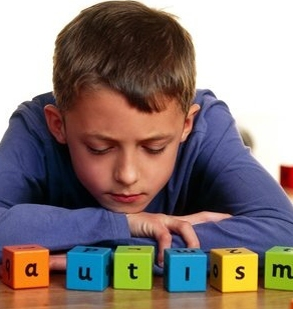Useful Short form for Disabilities:-
ü
AAMD -
The American Association on mental Deficiency.
ü
ADA -
Americans with Disabilities Act.
ü
AAMR - The American Association on Mental
Retardation.
ü
AAC - Alternative Augmentative Communication.
ü
ADA - Americans with Disabilities Act.
ü
ADHD - Alienation
Deficit Hyperactive Disorder.
ü
ADD -
Alienation Deficit Disorder.
ü
ADPP -Assistance
to Disabled Person for Purchase.
ü
ALIMCO - Artificial Limb Manufacturing Corporation
of India.
ü
ADL - Activities
of Daily Livings.
ü
APE
- Adaptive Physical Education.
ü
ASL
- American Sign Language.
ü
AT
- Assistive Technological.
ü
APA
- American Psychological.
ü
ALC
- Artificial Limb Center.
ü
AAW
- Anganwadi Worker.
ü
AYJNHH -
Ali Yavar Jung National Institute For The Hearing Handicapped.
 |
| Useful shortform for Disabilitie |
ü
BD
- Behavioral Disorder.
ü
BSL
- British Sign Language.
ü
BASIC MR - Behavioral Assessment Scale for
Indian Children with Mental Retardation.
ü
CA
- Chronological Age.
ü
CAP -
Curricular Action Plan.
ü
CAPD -
Central Auditory Processing Disorder.
ü
CBR -
Community Based Rehabilitation.
ü
CRC -
Composite Rehabilitation Centre.
ü
CHC -
Community Health Centre.
ü
CRE -
Continuing Rehabilitation Education.
ü
CWSN -
Children with Special Need.
ü
CWD - Children with Disabilities.
ü
DSW -
Department Of Social Welfare.
ü
DPED - District Primary Education Programs.
ü
CP - Cerebral Palsy.
ü
CD -
Cog native Disturbance.
ü
DALY - Disability Adjusted Life Year.
ü
DISE
- District Information System for
Education.
ü
DMHP - District Mental Health Programmer.
ü
DPO -
Disabled Persons Organization.
ü
DDRC - District Disability Rehabilitation Center.
ü
DSM4 -
Diagnoses and Statistical Manual of Mental Disorders Fourth Edition.
ü
DF -
Deaf Blindness.
ü
DMD -
Develop Mental Delay.
ü
DIET –
District Institute of Education and Training.
ü
DS -
Down Syndrome.
ü
DSM – Diagnostic and Statistical Mental of
Disorders by the American Psychiatric Association.
ü
EPS -
Employees Pension Scheme.
ü
ECCE – Elementary
Child Care & Education.
ü
ESCAP – The Economic and Social Commission for
the Asia and Pacific Region.
ü
EPSDT - Early and Periodic Screeching Diagnosis
and Treatment.
ü
ECE -
Early Childhood Education.
ü
ED – Educational Disturbance.
ü
EIP -
Early Intervene on Program me.
ü
EFA -
Education for All.
ü
EMR – Educable
Mentally Retarded.
ü
ESEA –
Elementary and Secondary Education Act.
ü
FACP –
Functional Assessment Checklist for Programming.
ü
ICIDH –
The International Classification of Impairments, Disabilities and Handicaps.
ü
ICD –
International Classification of Disability.
ü
IEDC – Integrated Education for Disabled Children.
ü
ICDS –
Integrated Child Development Service.
ü
IEP – Individualized Educational Program me.
ü
IFSP –
Individualized Family Service Plan.
ü
IGNOU – Indira Gandhi National Open University.
ü
IPH – The Institute for the Physically
Handicapped.
ü
ILO – International Labor Organization.
ü
ISL – Indian Sign Language.
ü
IYDP –
International Year of Disabled Persons.
ü
LD – Learning Disabled.
ü
LRC –
Least Restrictive Environment.
ü
LPC – Large Print Computer.
 |
| Shortform used in Disability |
ü
MBD –
Minimal Brian Dysfunction.
ü
MD – Multiple Disabilities.
ü
MDPS –
Madras Development Programming System.
ü
MHRD –
Ministry of Human Resource and Development.
ü
MOH –
Ministry of Health.
ü
MR – Mental Retardation.
ü
MSJE –
Ministry of Social Justice & Empowerment.
ü
NCERT –
National Council of Educational Research &Training.
ü
NCTE - National Council of Teacher Education.
ü
NGO – Non Government Organization.
ü
NHFDC –
The National Handicapped Finance and Development Corporation.
ü
NICDR –
National Information Center on Disabled & Rehabilitation.
ü
NIMH –
National Institute for Mentally Handicapped.
ü
NIOH –
National Institute of Orthopedically Handicapped.
ü
NIRTAR – National Institute of Rehabilitation,
Training and Research.
ü
NIVH –
National Institute for Visually Handicapped.
ü
NSSO –
National Sample Survey Organization.
ü
NIOS –
National Institute of open Schooling.
ü
NPRPD –
National Program me for Rehabilitation of Person with Disabilities.
ü
NPE – National Policy on Education.
ü
NUEPA –
National University of Educational Planning and Administration.
ü
OH
- Orthopedic Handicapped.
ü
OT
– Occupational Therapy.
ü
PIED
– Project Integrated Education for the Disabled.
ü
POA
– Program me of Action.
ü
PT
– Physically Therapy.
ü
PTA – Pure Tone Audiometric.
ü
PHC –
Primary Health Center.
ü
PSL –
Pakistan Sign Language.
ü
PWD – Person with Disability Act.
ü
PWMR –
Person with Mental Retardation.
ü
RCI
– Rehabilitation council of
India.
ü
RET – Rational Emotive Therapy.
ü
HRD – Human Resource Development.
ü
SCERT – State Council for Education Research and
Training.
ü
SE – Special Education.
ü
SSA
– Servo Shiksha Abhiyan.
ü
SLD – Specific Learning Disability.
ü
STD
– Sexually Transmitted Disease.
ü
TEACH –
Treatment and Education of Autism and related Communication Handicapped.
ü
TMR – Trainable Mentally Retarded.
ü
TDD – Telecommunication Devices for the Deaf
(Hearing Impaired)
ü
UGC – University Grants Commission.
ü
UNFPA –
United Nation Fund for Population Activities.
ü
UNESCO –
United Nation Education, Scientific and Cultural Organization.
ü
UNCIEF –
United Nations of International Children Emergency Fund.
ü
VSA – Very Special Arts.
ü
VSMS –
The Vineland Social Maturity Scale.
ü
WHO –
World Health Organization.
ü
WISC – Wechsler Intelligence Scale for
Children.
ü
VAPS – Vocational Assessment Programming
System.
ü
VI – Visual Impairment.
ü
VRC – Vocational Rehabilitation Center.
ü
UNCRPD – United Nations Convention on the Right
of Person with Disabilities.











